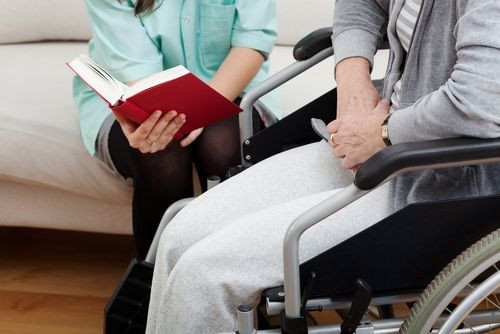US Health Care System Doing Disservice For End-Of-Life Care, With High Costs And Instability

Only one-third of the doctors surveyed in a 2013 JAMA study said they educate their patients on hospice, or end-of-life care, during early stages of treatment — a number the Institute of Medicine’s (IOM) latest report found hasn’t improved much, if at all.
The IOM is an independent research team under the National Academy of Sciences, and the 21-member committee spent two years, not to mention millions of dollars, investigating end-of-life care under the United States Health System. And similar to findings published in JAMA, the IOM found fewer than 30 percent of American adults discuss their end-of-life wishes with their doctor. This is despite the vast majority of Americans preferring to die at home.
"This is one of the most comprehensive and up-to-date [study] that has been performed on end-of-life care for people of all ages who are approaching death," Victor Dzau, president of the IOM, said in a press release. "Health care delivery for people nearing the end of life has changed remarkably since IOM published its 1997 report ‘Approaching Death: Improving Care at the End of Life.’ Since that report, the number of palliative care teams within hospital settings has increased, and palliative care is well-established in the professions of medicine, nursing, and social work. The time is now for our nation to develop a modernized end-of-life care system as envisioned by this report."
Palliative care slightly differs from hospice, as palliative care is offered throughout a cancer patient’s experience. Hospice is offered only toward end-of-life, cancer or not. Yet, the primary purpose of both is to alleviate a patient’s pain and discomfort, depression, and anxiety, as well as maximize their mobility and lessen the stress and burden that's commonly cast on caregivers. Stressed-out caregivers, according to the American Psychological Association, suffer the greatest physical and psychological health effects, which is why the IOM proposed there needs to be a total revamp of the way the U.S. educates patients and caregivers alike.
"Individuals should have time with their doctors to talk about end-of-life issues, and clinicians should receive the training and financial incentives for such discussions," Dave Walker, co-chair of the IOM committee and former U.S. comptroller general, said. "The U.S. health system is geared toward providing curative care aimed at curing disease, rather than providing the supportive and comfort care most people prefer at the end of life. Without adequate advance care planning, the default decision is for clinicians to treat a disease or condition, no matter the prognosis. This is far from a patient-centered, family-oriented approach that honors the preferences for care for those near the end of life in an affordable and sustainable manner."
IOM’s 507-page report details exactly what it would take to accomplish this advance care plan, including a restructure of Medicare and Medicaid. Their recommendations don't just call for "improving training and credentialing for clinicans" — something providers already expressed in interest in receiving during this year's Quality of Care and Outcomes Research Scientific Sessions — but it also requires federal and state governments to provide the incentive to discuss issues, values, preferences, and appropriate services and care. Basically, raise awareness. “If you meet their needs, treat their pain, treat their depression, get them some help in the house, your [health care] costs plummet,” Dr. Diane E. Meier, a committee member and the director of the Center to Advance Palliative Care, told The New York Times.
Being able to end life as dignified, and as comfortable, as possible sans jacked-up hospital bills and over-stressed caregivers? Sign us up.
Source: Committe on Approaching Death: Addressing Key End-of-Life Issues, Institute of Medicine. "Dying in America: Improving Quality and Honoring Individual Preferences Near the End of Life." The National Academies Press. 2014.



























